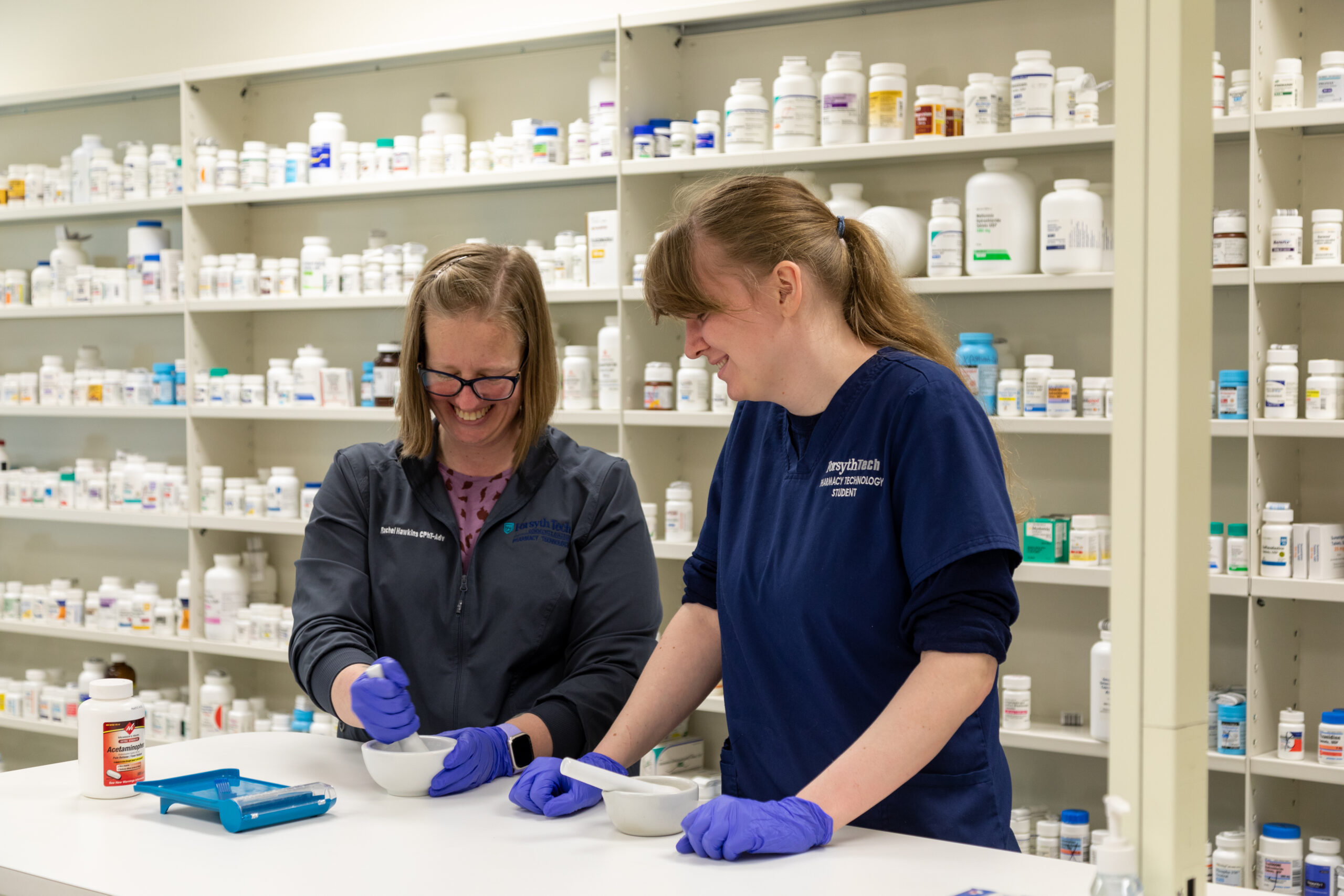Faculty & Staff Stories
From Fine Arts to the Pharmacy: Teacher and Advocate at Forsyth Tech Has Creative Career Path

Faculty & Staff Stories

Rachel Hawkins is, quite frankly, fun to talk to. She is bright and lively, articulate, knowledgable and funny – all at the same time. I’m not really surprised when she says that she has a BA in fine art, even though now she is the Clinical Education Coordinator for the Pharmacy Technology Program at Forsyth Tech.
Upon graduating from the University of Connecticut, her mother strongly suggested that she find a job with health insurance. So, Rachel kind of fell into a job as a pharmacy tech in Connecticut. She enjoyed the work, and always wanted to learn more, so when “life brought her” to North Carolina, she looked for another pharmacy technician job. She considers herself fortunate to have found a job at Moses Cone Hospital, where she had good mentors. They encouraged her to learn more and gain advanced skills in the field.
Then, the North Carolina Board of Pharmacy changed the licensing requirements. It may surprise other laymen – as it did me – that there is not currently a standardized requirement for pharmacy techs in North Carolina. As Rachel put it, “Anyone could walk in off the street, apply for a job at CVS or Walgreens, and become a pharmacy tech,” which I found to be more than a little disturbing.
Anyway, the NCBOP changed the requirements so that pharmacy techs could take on more duties and responsibilities, but an associate degree was required. Rachel was interested in working at the top of her field, and knew that Forsyth Tech had a good pharmacy tech program, so she applied and was accepted.
Throughout her career working in a pharmacy, and now in higher education, she views a huge part of her job to be to advocate for pharmacy techs. “There is a public perception that the techs just hand you your medication and that’s it,” says Rachel. “But they are actually catching a lot of errors, in hospitals they are packaging and compounding medications, ensuring clean rooms stay sterile, and meeting patients in the ER to get medication histories so that patient care can be expedited.”
In addition to working with students to ensure they get the training they need and advocating for pharmacy techs, Rachel also focuses on standardizing the requirements for pharmacies throughout the state, and preventing burnout among students and pharmacy technicians – which is happening at higher rates because of the pandemic.
Since being both an educator and an advocate could be full-time jobs in their own right, I ask her if her background in fine arts helps her deal with burnout. She pauses for a moment, then smiles and says, ”I think there are nontraditional skills that I learned that I draw from to think outside of the box and solves problems in a different way.” Did I mention that her focus for her fine arts degree, and preferred medium, is printmaking?
The pharmacy tech program at Forsyth Tech, which has a 100% hire rate for students who pass the program, begins in the summer. Each cohort has up to 15 students, and graduates have an immediate income earning potential of $15.65 – $21/hour.